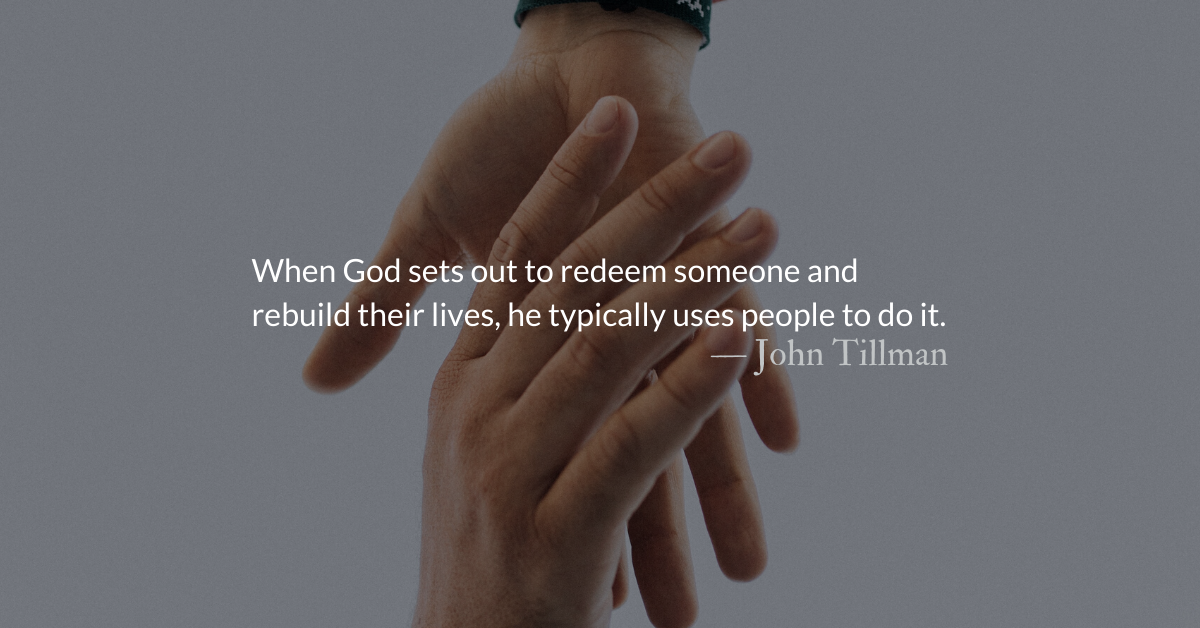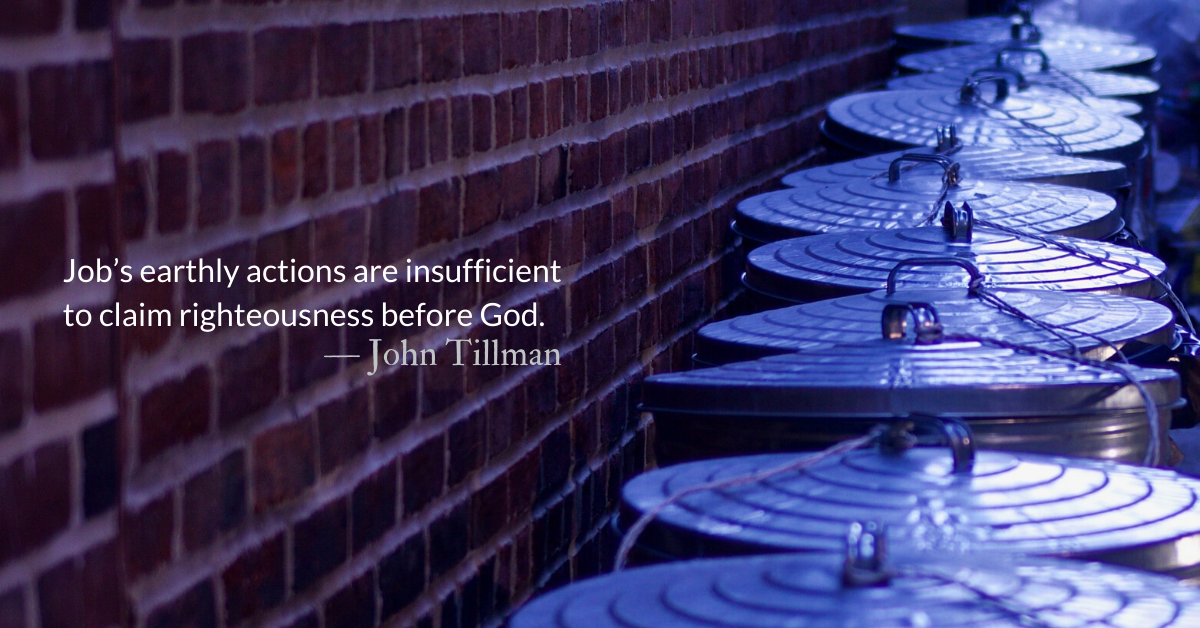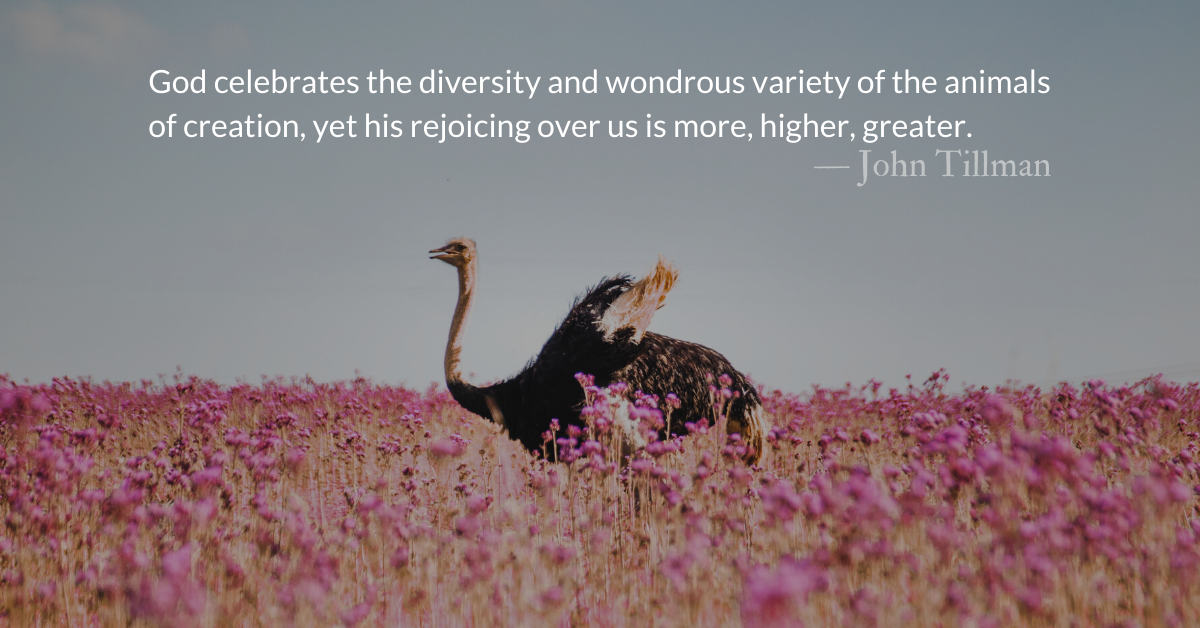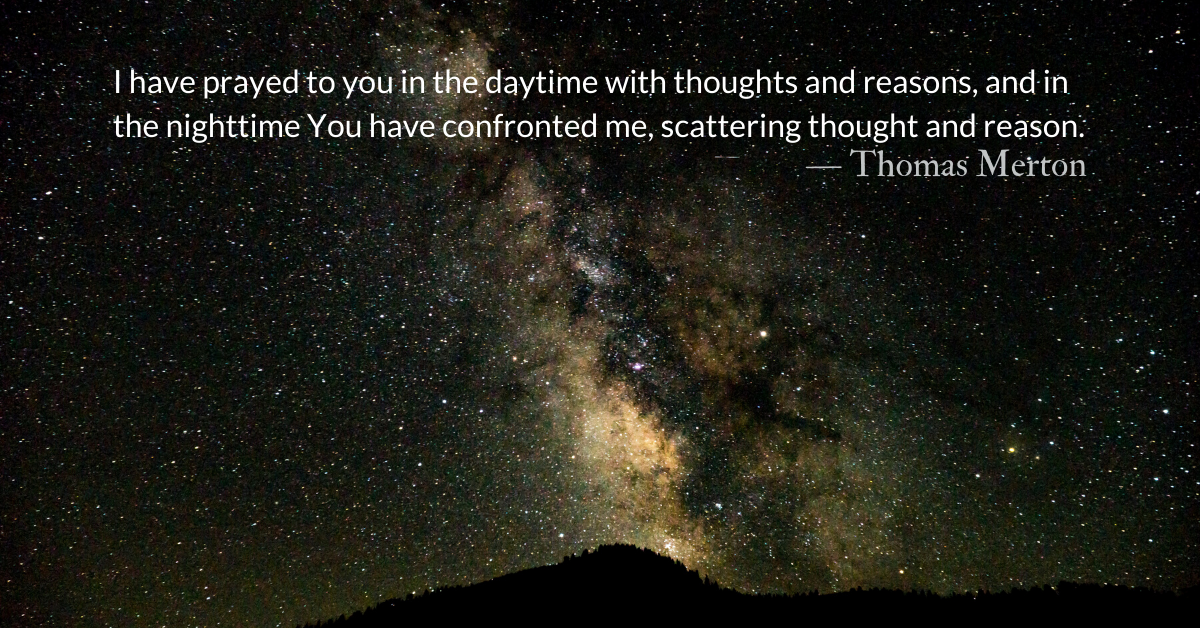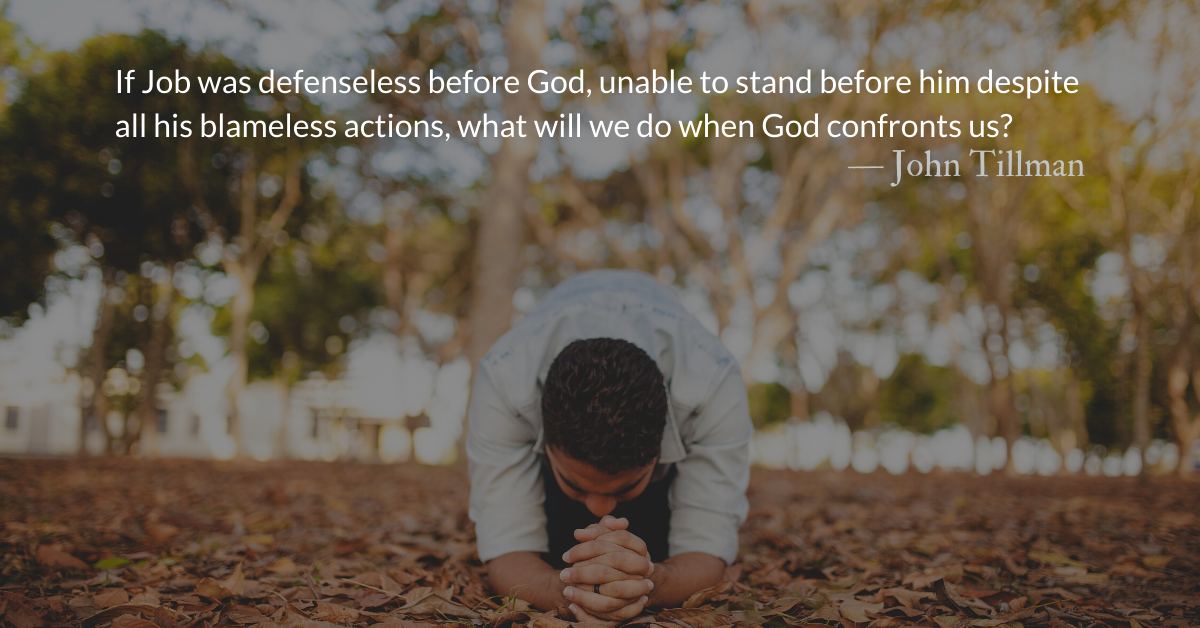Scripture Focus: Job 41.11
Who has a claim against me that I must pay?
Everything under heaven belongs to me.
Job 42.10-11
After Job had prayed for his friends, the Lord restored his fortunes and gave him twice as much as he had before. All his brothers and sisters and everyone who had known him before came and ate with him in his house. They comforted and consoled him over all the trouble the Lord had brought on him, and each one gave him a piece of silver and a gold ring.
Reflection: Unobligated God
By John Tillman
“Who can stand against me?” God says to Job. “Who has a claim against me that I must pay?”
In the beginning of the book of Job, the adversary, Satan questions God’s justice. He says, in effect, “You are just bribing Job, God. He doesn’t really love you.”
Through many of their arguments, Job and his friends question God’s justice. They suppose that Job must be sinning in some way, otherwise, God is unjust.
We often question God’s justice today, asking many of Job’s same questions. Why do the wicked thrive? How is it that the innocent suffer? Why is the world not just, if God is just?
When we question whether God is just, we question the author of justice.
We think God owes us something because we live in an unjust world.
But it is us who have made this world unjust, wrestling it from God’s will along the way.
We have sinned against God. Not the other way around. God is not a debtor. We are. Our sinful condition means that we are not the victims but the perpetrators. Sin makes us into God’s enemies.
God does not owe us salvation and forgiveness.
But thank God that he pays debts that he does not owe. He is a God who gives when he has no obligation. He is a God who comes to us, as we suffer in the highways and the byways, and compels us to come into his lavish banquet.
In the last chapter of Job (tomorrow’s reading) we see that God restored Job’s fortunes. I suppose we picture God handing Job a reimbursement check.
But there is an important detail that we should not skip over. Job’s fortunes were restored by God, yes. But God used the means of Job’s friends to carry it out. Scripture says everyone Job had ever known came to give him a financial gift.
Part of God’s restoration of Job was carried out in the community and by the community. When God sets out to redeem someone and rebuild their lives, he typically uses people to do it.
May we cry to God for his justice, his righteousness, to be done on earth among us.
May we be a part of communities that line up to help the suffering as people helped Job.
May our actions be empowered by the Holy Spirit to demonstrate God’s justice in the world.
Divine Hours Prayer: The Greeting
My lips will sing with joy when I play to you, and so will my soul, which you have redeemed. — Psalm 71.23
– Divine Hours prayers from The Divine Hours: Prayers for Springtime by Phyllis Tickle.
Today’s Readings
Job 41 (Listen -3:03),
2 Corinthians 11 (Listen -4:46)
Read more about God is Faithful, not Indebted
Job and his friends believed in an indebted God who owed good to the righteous, owed suffering to the wicked, and never made late payments.
Read more about God of the Weak and Doubtful
Thank God, that he is the God of the weak and the doubtful.
In doubt hold out your hands.
In weakness cling to him.

